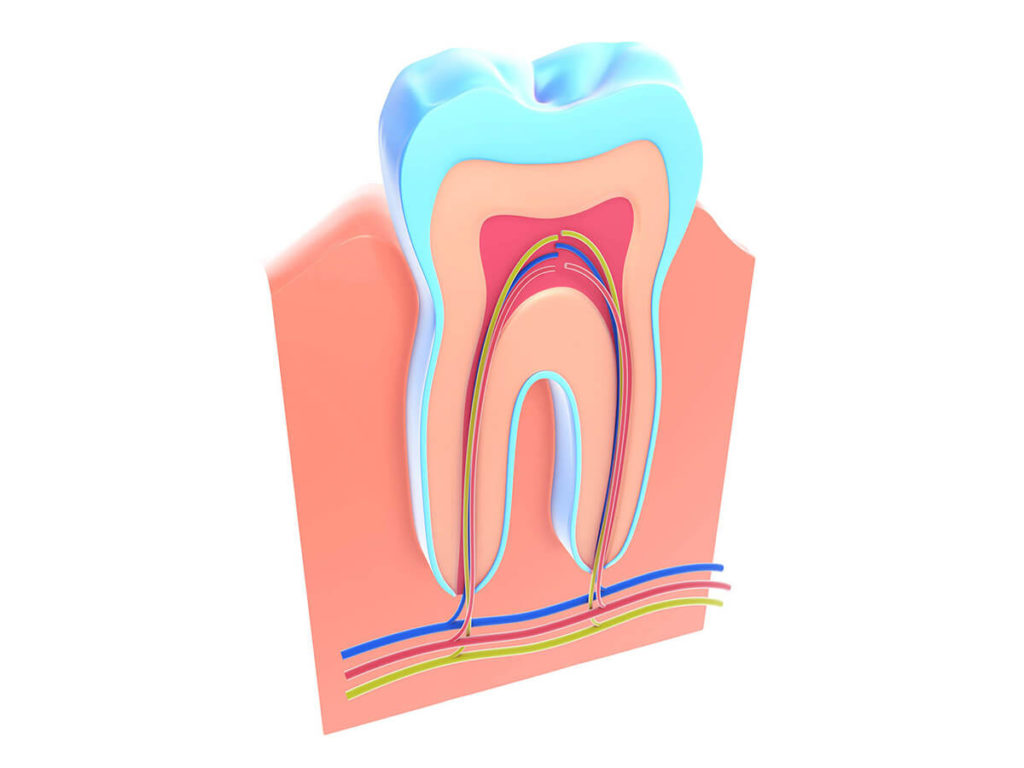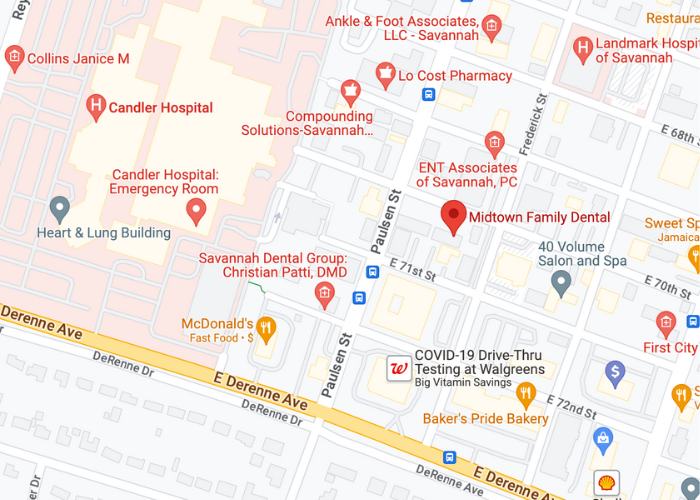Root Canal Treatment
Root canal treatment is a proven procedure for saving an infected tooth from extraction. It restores the tooth's natural appearance and leaves your mouth healthy and strong.
Root Canal Treatment
in Savannah, GA
The inner structure of a tooth is composed of a delicate material called pulp, which is protected by the hard enamel around it. However, harmful bacteria can sometimes reach the pulp through deep cavities or injuries, causing a potentially serious infection. Without treatment, the tooth may need to be extracted. Root canal treatment is an effective solution to treat an inner tooth infection and save the tooth.

-
What is a root canal?
A root canal is a dental procedure used to save a tooth that has become inflamed due to an infection in the tissue, nerves, and blood vessels. To relieve the pain and save the tooth, the dentist will have to remove the infected and diseased tissue from inside the tooth. Then, the canal inside the tooth is cleaned and medicated to help the surrounding area heal.
Suppose a patient has an infected root canal. In that case, they will usually experience severe pain and notice symptoms such as sensitivity to hot and cold foods and drinks, recurring abscesses on the gums, and swollen and tender lymph nodes. After the root canal treatment, a crown might need to be placed on the tooth to protect it from further damage.
-
How is root canal treatment performed?
Root canal treatment typically begins with digital X-rays to determine the extent of the damage. Sedation is generally provided to ensure comfort as the dentist accesses the tooth’s inner structure from the top. Special care is taken to carefully clean out any infectious material to leave the tooth as a hollowed-out structure. Next, an antimicrobial liquid is used to flush the root canals down to the jawbone. The tooth is then treated with a medicated filling substance to offer support and strength and help the tooth heal promptly. Finally, to protect the tooth, a dental crown is placed over the structure to prevent fractures and breakages.
-
How long does the pain from a root canal last?
Many people believe that root canals are extremely painful, but the procedure is usually not more painful than a tooth filling. Dentists typically administer anesthesia before the procedure, which helps minimize discomfort during and shortly after the procedure. However, some sensitivity and discomfort may exist after the procedure as the area around the root canal heals. During the procedure, gums can become swollen or agitated, resulting in mild pain or sensitivity. The pain and sensitivity should subside when the tooth has healed. Your dentist will provide specific instructions on caring for your newly treated tooth after the procedure.
-
What are alternatives to root canal treatment?
Many individuals who are recommended root canal treatment often wonder if alternative procedures are available. Root canal therapy is usually the last resort to saving a damaged tooth. If you do not opt for root canal treatment, the only remaining options are to have your tooth extracted or wait until you experience pain and get it removed later. However, both of these alternatives have risks of the infection spreading more profoundly into your face or adjacent teeth. Therefore, getting a root canal is the best solution to save your tooth and prevent further complications.
If you decide to have your tooth extracted, you should still replace it as soon as possible. Delaying the replacement can cause the surrounding teeth to shift and affect your bite alignment. Two common replacement options are a dental bridge or implant.
More Questions?
If you have any questions or would like to schedule a consultation, contact our office and we'll be happy to help.













